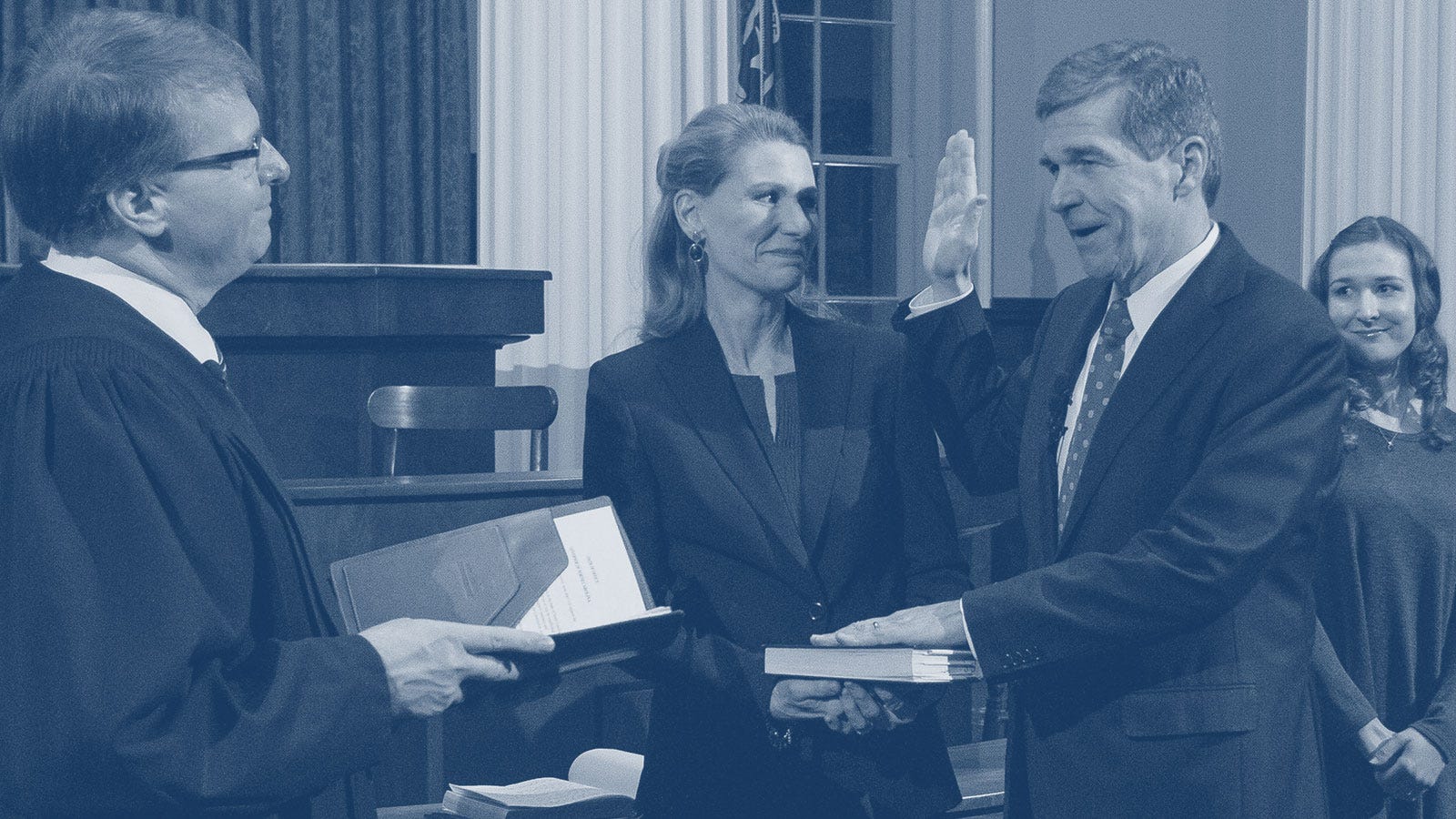About Us: Progressive Turnout Project is the largest voter contact organization in the country, specifically dedicated to mobilizing the Democratic Party and defending democracy. Our mission: rally Democrats to vote.

This year, Progressive Turnout Project is committing millions of dollars to rally Democratic voters nationwide to elect candidates up and down the ballot. In states like Nevada and New Mexico, where Democrats enjoy a trifecta, we’re looking to protect majorities and keep the Governor’s mansion. But investing in states with a long-standing tendency to vote red — like Texas or North Carolina, is less straightforward. So, we asked our Legislative Political Director, Alyssa, to help us explain why these investments matter.
“In short, when we contribute to and run our programs in states like North Carolina we are investing for the long term. There is power in a multi cycle investment,” Alyssa said. “To build and maintain that power, there has to be a continued, and consistent investment in the state and local Democratic infrastructure.”
By engaging with the voters we’re able to turn out this year, and supporting the work of local organizations and candidates who can continue the engagement after November, we are much more likely to create lifelong voters who will turn out year after year.
And, by supporting the talented candidates and organizers in these multi-cycle states we can help them continue to make a difference at the state level, both through running elections and by ensuring that Democrats hold on to the procedural tools and numbers we need to stop bad legislation.
“Unless we commit to multi-cycle investments, it will be impossible to gain footholds in new areas of the country and we would be unable to win and hold on to the Democratic seats in the areas where we need them most,” Alyssa said.
We cannot start rolling back harmful legislation, like dangerous abortion bans and attacks on voting rights, unless we start making these investments, and fighting, in every state.
At Progressive Turnout Project, we know that each state is unique, and that our investment and approach has to be tailored to that individual state and its politics. That’s why we are committed to doing this hard, multi-cycle work. We know that we may not get the outcome we want right away, but if we keep a consistent, continuous commitment to the work, eventually we will be better positioned to take, and then keep power.
“Every investment should be multi-cycle,” said Alyssa. “That’s the only way we can gain power and then hold on to it.”
Here’s how it works
As a party, we have a lot to gain by investing early, often, and consistently in red states.
“If we don’t invest at the state level, consistently, by building and supporting the greater state Democratic party infrastructure and larger local Democratic ecosystem, then we end up lacking the framework that can help encourage and grow Democratic power on the ground,” Alyssa said. “If we are lacking a strong foundation to build on, how can we expect to attract and support candidates when they run for office? And how can we then support and encourage our activists to get involved, and more importantly, stay involved?”
We have to start somewhere — and gaining a toe hold, no matter how small it may seem, is incredibly important. Plus, when we have programs up and running early, we’re putting ourselves in a better position to protect the seats we have.
“We want to make sure that even if we’re in the minority, we’re still able to use legislative procedure to block some of the really horrific bills that people propose.” Alyssa said.
In many of these multi-cycle states, Democrats will likely still be in the minority after Election Day. But even picking up a few seats puts us in a better position, and helps support the work that folks are doing in these states, beating back continued attacks on bodily autonomy, LGBTQ rights, and other restrictive and discriminatory bills.
Here it is in action
North Carolina has historically leaned red, and voted Republican in nine of the last 10 presidential elections. But that doesn’t mean there aren’t Democrats that we could rally to vote.
“We [local and some national organizations] did a lot of multi cycle work in North Carolina ahead of the governor’s race there, and, by committing to a long term investment strategy, we were able to flip it,” and elect Governor Roy Cooper, Alyssa said.
There’s a legislative process in many places, including North Carolina, that allows the minority party to block bad bills.
“In some of those places, Democrats have the numbers we need to block those bad bills,” Alyssa said. “But if we were to lose even one seat, those numbers would change and we wouldn’t be able to use even procedure to our advantage.”
We’re keeping our investment in North Carolina big — both in direct contributions and Campaign Fellows — because we want to make sure that in the next session, when Governor Cooper vetoes bills, those vetoes are able to be sustained. And when he’s up for reelection, we can hopefully reelect him while picking up more seats and getting him some backup.
“You talk to legislators in North Carolina, and they’re incredibly worried because they’re a few seats away from not being able to sustain a veto,” Alyssa said. “They know that the local organizations understand just how slim the margins are – but worry nationally that there is an assumption that with the Governor there to veto, then rights that are under attack across the south are somehow less threatened in North Carolina.”
In reality, the ability for Governor Cooper to be that backstop is hanging by a thread. We only have to look to Kentucky Republicans’ hateful ban on trans athletes to see what can happen when the Governor’s veto cannot be sustained.
“We’re committed to working with our in-state partners to make sure we keep those seats, and give the Democrats some more breathing room come next session,” Alyssa said.
Investing only in areas where we’re likely to see Democratic wins would be detrimental to the health of the party in the long run.
“Organizations tend to plan for a multi-cycle investment, and then after the first cycle, if we don’t get exactly what we wanted right away, or we don’t do as well as we think we should have, we say ‘well, let’s scale back our investment because it didn’t work,’” Alyssa said.
But, if we give up on those states, we see those bad laws affect us nationally.
“We want to help show other organizations that there is a need for real, sustained multi-cycle investments from national groups with large budgets, and make sure that some of our national partners see the importance of early and sustained funding,” Alyssa said.
We’re working directly with the state legislative caucuses, party leaders, and other local organizations who know how important multi-cycle investments are, and who have been doing the work year and year out
“We want to be one of those groups that can say: Hey, we’ve been here. They’re doing good work and there are amazing candidates, but we can’t be the only national group investing. Here’s what we put into it, here’s what we saw, why don’t we get other groups to do the same?” Alyssa said.
We’re dedicated to mobilizing the Democratic Party and defending democracy, but we rely on small-dollar donations to power our work. To help, you can contribute here, volunteer, or work with us to rally Democrats to vote.

